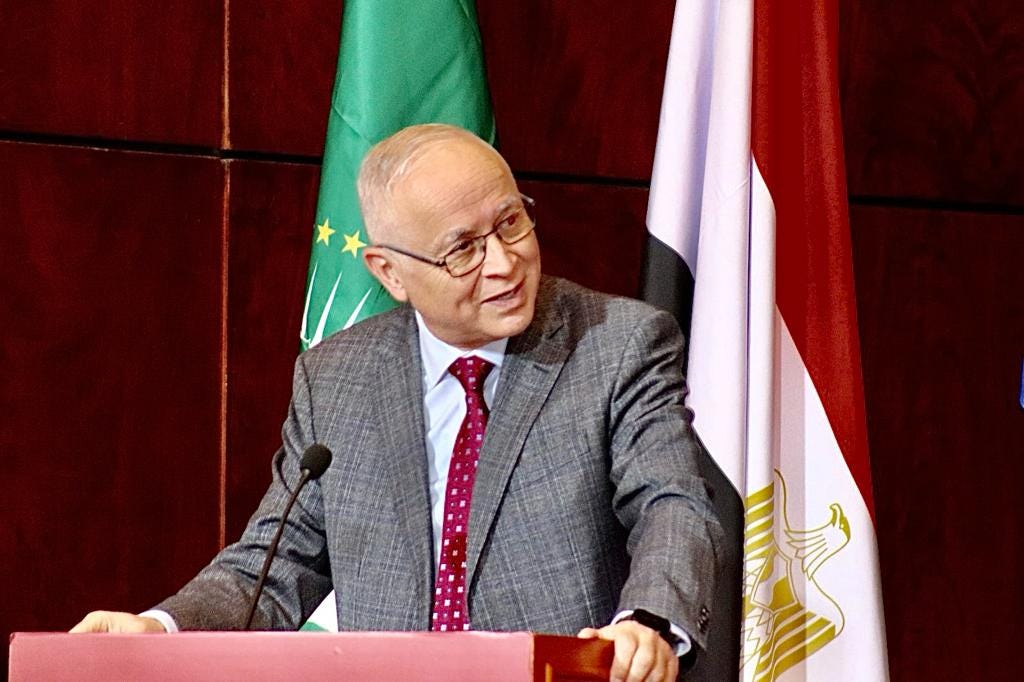AUC Optimistic about Africa’s Space Agency
The convention will see eight consortia leading a network of over 120 national and regional institutions present their achievements over the last 2 years’ duration of programme implementation.
Sharm El Sheikh, Egypt-The African Union Commission (AUC) is optimistic about the African Outer Space program as African governments are showing an unwavering political will to nurture and build a viable space program for the continent through the Agency, AUC Commissioner for Education, Science, Technology and Innovation-Prof. Mohammed Belhocine has said, writes Sharon Kavhu.
The African Outer Space program is a well-coordinated and integrated continental programme that is responsive to the social, economic, political, and environmental needs of the continent.
Currently, the programme is being hosted by Egypt and it aims at developing a regulatory framework that supports the African Space Agenda to ensure that the continent is a responsible and peaceful user of outer space.
Speaking during the official opening of the First GMES & Africa Phase 2 Forum, Belhocine also noted that the African governments are also showing their firm commitment to resource allocation towards the priorities that are linked to the African Outer Space programme.
“It is worth recognizing the political will among African governments to nurture and build a viable space programme for the continent through the African Space Agency. I must once again congratulate Egypt for its selection to host the agency and for taking the necessary steps to build the edifice that will be the centre of operations for Africa’s space activities. Through ongoing joint efforts between the government of Egypt and the African Union Commission, we are optimistic that the agency will be operational sooner than later.” said Belhocine.
He said the issue of effective prevention and climate adaptation measures remains a critical challenge for sustainable development as there are projected increases in global temperatures and severe weather in parts of Africa.
According to Belhocine, many households in Africa that depend on rain-fed agriculture for their livelihoods are at great risk of food insecurity.
“African governments are committing a considerable percentage of their resources to respond to extreme weather events. Yet, natural hazards are increasing in frequency and impact, as climate-related disasters deepen current economic and environmental challenges. These and other priorities are the cornerstones of the Agenda 2063 and the African Outer Space programme. The aim is to ensure improved standards of living with transformed, inclusive and sustained economies in the continent,” said Belhocine.
He said the African Outer Space programme is also anchored by a strong institutional pillar GMES and Africa initiative which is the establishment of the European Union and African Union Commission.
The initiative between the two continents has made great strides in crucial areas of water and natural resources, coastal areas and marine areas.
Seven years after its inception, the GMES and Africa demonstrate the value of the long-term partnership between Africa and Europe. It has achieved tangible results and made an impact across a wide range of thematic domains in water and natural resources, and marine and coastal areas.
It has developed services, products and applications that address flooding, land degradation, ship traffic monitoring, and fisheries management, among many priorities.
This makes GMES and Africa a reference for continental and international collaboration on earth observation.
Last month the African Union and European Union had some fruitful discussions during the AU and EU Space Dialogue in Dakar, Senegal.
The outcomes of the meeting further strengthened the collaboration between the two parties and raised hope for improved collective capacity to resolve many challenges confronting the world through earth observation data and applications.
The ongoing GMES and Africa Phase 2 Forum is a continental interactive engagement platform for EO service providers, policymakers, academia, the private sector, societies and end users to dialogue on the best ways to tailor services for the benefit of the communities.
The convention will see eight consortia leading a network of over 120 national and regional institutions present their achievements over the last 2 years’ duration of programme implementation.



